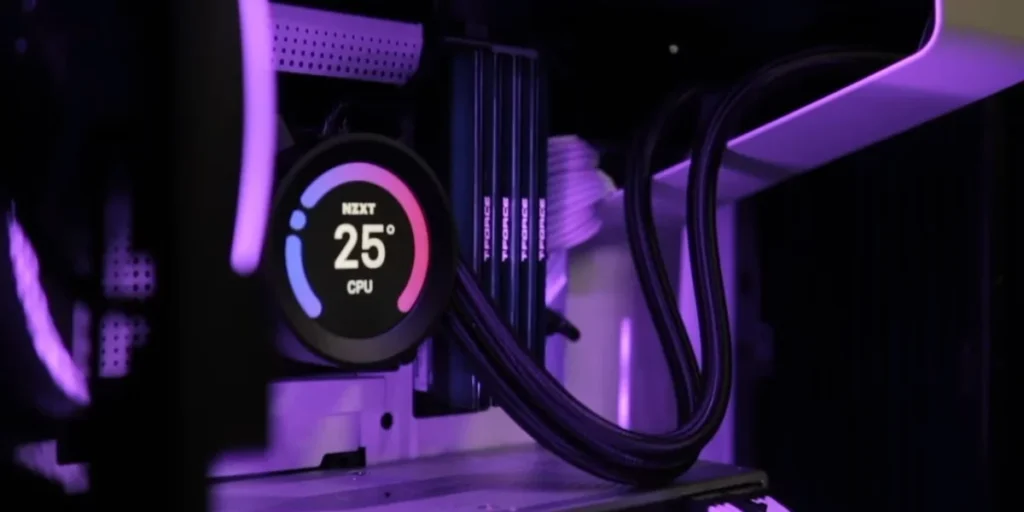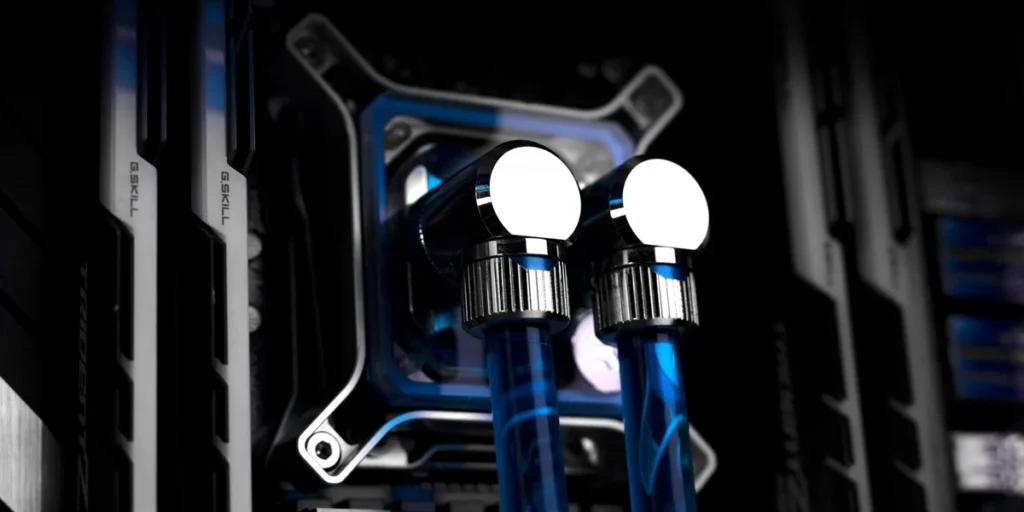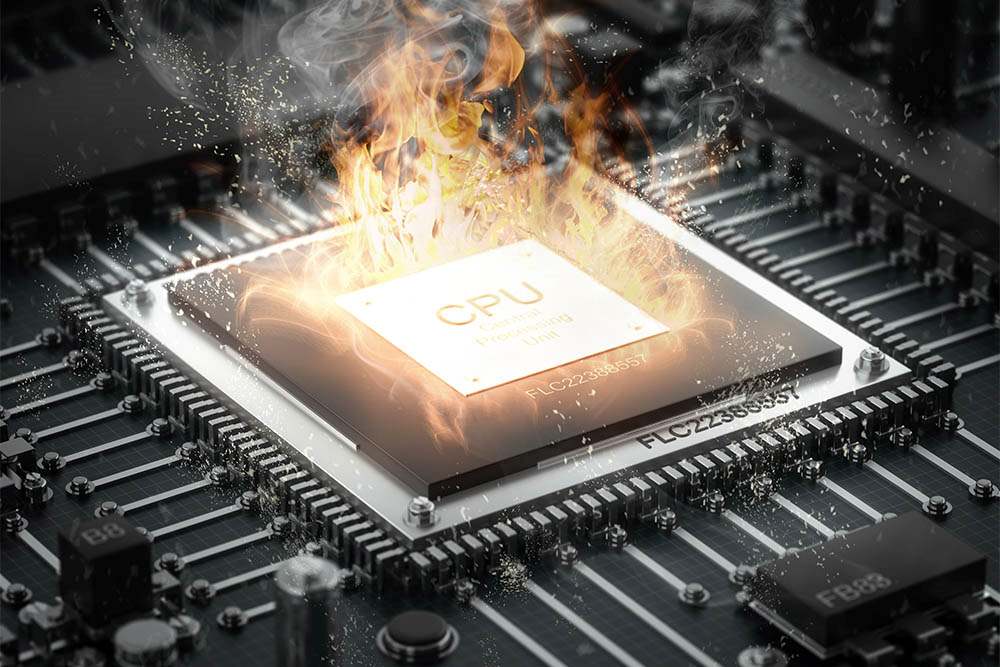When you’re deep into your favorite game, the last thing you want is your computer slowing down or, worse, shutting off. One key factor that can affect your gaming experience is your CPU’s temperature. So, what is a good CPU temp for gaming, and why should you care? Let’s break it down.
“A good CPU temperature for gaming is between 60-80°C. This range keeps your CPU safe and performing well. If temperatures go above 85°C, you may need better cooling or to lower your game’s settings to avoid damage.”
In this article, we will talk about “What is a Good CPU Temp for Gaming”
Table of Contents
Understanding CPU Temperature
What is CPU Temperature?
CPU temperature is the heat level of your computer’s processor. It’s important to monitor because high temperatures can cause slowdowns or damage. Keeping your CPU cool helps your computer run smoothly and last longer.
How is CPU Temperature Measured?
CPU temperature is measured using sensors inside the processor. These sensors send data to software tools that display the temperature on your screen. This helps you keep track and ensure your CPU stays within safe temperature limits.
Why CPU Temperature Matters in Gaming

Impact on Performance
High CPU temperatures can slow down performance, as the processor may reduce its speed to avoid overheating. This can lead to lag and lower frame rates in games or slowdowns in other tasks. Keeping the CPU cool helps maintain smooth and fast performance.
Potential for Damage
High CPU temperatures can cause serious damage to your processor. Over time, this can reduce its lifespan or even cause it to fail completely. To avoid this, it’s important to keep your CPU within safe temperature limits with proper cooling.
Optimal CPU Temperature for Gaming

Ideal Temperature Range
The ideal temperature range for a CPU is between 40-70°C during regular use and up to 80°C during heavy tasks like gaming. Staying within this range ensures your CPU runs efficiently and avoids potential damage from overheating.
Factors Influencing Optimal Temperature
The kind of cooling system, ambient temperature, and workload are some of the variables that affect the ideal CPU temperature.Heavy tasks, like gaming, generate more heat, requiring better cooling. Proper ventilation and clean, dust-free components also help maintain a safe and efficient temperature for your CPU.
Measuring Your CPU Temperature
Tools and Software
Tools and software for monitoring CPU temperature include programs like HWMonitor, Core Temp, and SpeedFan. These tools display real-time temperature data, helping you keep track of your CPU’s heat levels. Using them ensures your CPU stays within safe temperature limits and operates efficiently.
Steps to Measure CPU Temperature
- Download and install a temperature monitoring tool.
- Launch the tool and locate the CPU temperature readings.
- Monitor the readings while running your favorite games to see how the temperature fluctuates under load.
Factors Affecting CPU Temperature

Ambient Room Temperature
Ambient room temperature plays a key role in your CPU’s temperature. A cooler room helps keep your CPU’s temperature lower, while a hot room can make it run hotter. Keeping your environment cool and well-ventilated helps maintain safe CPU temperatures and optimal performance.
CPU Usage
CPU usage refers to how much of the processor’s power is being used at a given time. High CPU usage, especially during tasks like gaming or video editing, can increase temperature. Monitoring CPU usage helps manage performance and prevent overheating.
Cooling Solutions
Cooling solutions are essential for keeping your computer running smoothly and preventing overheating. Popular options include air coolers, liquid coolers, and thermal paste. Selecting the right cooling solution ensures your CPU stays cool and performs optimally.
Cooling Solutions for Gamers

Air Cooling
Air cooling is a popular choice for gamers to keep their CPUs cool. It uses fans and heatsinks to move heat away from the processor. Air cooling is affordable, easy to install, and effective for most gaming setups, ensuring stable performance.
Liquid Cooling
Liquid cooling is an effective way to keep your CPU cool, especially during heavy gaming. It uses water or coolant to absorb and carry heat away from the processor. Liquid cooling is quieter and more efficient than air cooling, making it ideal for high-performance gaming setups.
Other Cooling Methods
Other cooling methods include using thermal paste to improve heat transfer, installing case fans to increase airflow, and setting up custom cooling loops for advanced cooling. These options help keep your CPU temperature low, ensuring stable and reliable performance during gaming and heavy tasks.
Tips to Maintain Optimal CPU Temperature
Proper Ventilation
Proper ventilation is key to keeping your CPU at an optimal temperature. Ensure your computer case has enough airflow by placing it in a well-ventilated area and using quality case fans. Good ventilation prevents overheating, which helps maintain your CPU’s performance and longevity.
Regular Cleaning
It’s crucial to clean your computer on a regular basis to maintain its optimal performance.Your CPU may overheat due to airflow obstructions caused by dust and debris.Clean your fans, vents, and components regularly to prevent overheating, ensuring your computer stays cool and performs well over time.
Thermal Paste Application
Applying thermal paste correctly is essential for effective CPU cooling. It fills the tiny gaps between the CPU and the cooler, improving heat transfer.To guarantee adequate contact, use a tiny amount of paste and distribute it evenly. This helps maintain a lower CPU temperature and better performance.
Overclocking and CPU Temperature

What is Overclocking?
Overclocking is the process of increasing your CPU’s speed beyond its factory settings to boost performance. While it can make your computer faster, it also increases heat and power usage. Proper cooling is necessary to prevent overheating and maintain stability when overclocking your CPU.
Effects on Temperature
The lifespan and performance of a CPU are impacted by its temperature.High temperatures can cause the CPU to slow down or even fail. Proper cooling is essential to keep the CPU running smoothly and efficiently. Using fans, heatsinks, or liquid cooling helps maintain a safe temperature for the CPU.
Managing Temperature During Overclocking
When overclocking, managing temperature is crucial. Overclocking increases the CPU’s speed, which generates more heat. To prevent overheating, use better cooling methods like upgraded fans, liquid cooling, or thermal paste to keep the temperature under control.
Signs Your CPU is Overheating
Performance Issues
CPU overheating can cause performance issues like slowing down, crashes, or unexpected shutdowns. The CPU might reduce its speed to cool down, which affects overall system performance. Keeping the CPU cool is essential to avoid these problems.
Warning Signals
Warning signals alert you to potential problems. These can include unusual noises, error messages, or changes in performance.Early detection of these symptoms can help avert more serious problems. Pay attention to any warnings to keep your system running smoothly.
Long-term Effects of High CPU Temperature
Reduced Lifespan
High CPU temperatures can shorten the lifespan of your processor. Constant overheating can damage internal components, leading to earlier failure. Keeping the CPU cool with proper cooling methods helps ensure it lasts longer and performs well over time.
Potential Hardware Damage
High CPU temperatures can cause potential hardware damage, such as burnt circuits or failing components. Prolonged exposure to heat weakens the CPU and other parts, leading to malfunctions or permanent damage. Proper cooling is essential to protect your hardware.
CPU Temperature Monitoring Tools
Popular Software Options
Popular software options for monitoring CPU temperature include HWMonitor, Core Temp, and SpeedFan. These programs display real-time temperature data, helping you track your CPU’s heat levels. Using them can prevent overheating and protect your system from damage.
Features to Look For
When choosing software, look for features like real-time monitoring, alerts for high temperatures, and easy-to-read displays. Compatibility with your hardware and the ability to log data over time are also important to ensure effective monitoring.
User Experiences and Case Studies
Common Experiences
Common experiences include slow performance, unexpected crashes, or devices overheating. Many users encounter issues with software not working as expected or hardware failing over time. Regular maintenance, updates, and understanding basic troubleshooting can help avoid or quickly resolve these common problems.
Lessons Learned
Lessons learned from using technology include the importance of regular backups, keeping software updated, and monitoring system health. Paying attention to warning signs can prevent bigger issues. It’s also valuable to know basic troubleshooting skills to solve common problems and maintain a smooth, reliable experience with your devices.
Conclusion
To keep your CPU safe and performing well during gaming, maintain a temperature between 60-80°C. High temperatures can lead to slowdowns or damage, so it’s important to monitor and manage your CPU’s heat using proper cooling methods and regular maintenance.
FAQs
What is my CPU’s maximum safe temperature?
Your CPU should stay below 85°C for safe performance. Higher temperatures can harm your system. Keeping it under 70°C during normal use is ideal for most computers.
Can high CPU temperature damage my computer?
Yes, high CPU temperatures can damage your computer. Overheating may cause system crashes, reduce lifespan, and even harm hardware components like the CPU, motherboard, or hard drive.
How can I play games when my CPU is cooler?
To lower CPU temperature while gaming, improve airflow, clean dust from fans, use a cooling pad, close unused programs, and check thermal paste on your CPU for proper application.
Is air cooling or liquid cooling preferable for gaming?
Liquid cooling is often better than air cooling for gaming. It provides more efficient heat management, especially for high-performance systems, but it can be more expensive and complex to install.
How often should I check my CPU temperature?
Check your CPU temperature every few weeks, especially after gaming or heavy tasks. Regular checks help prevent overheating and ensure your cooling system is working properly.


